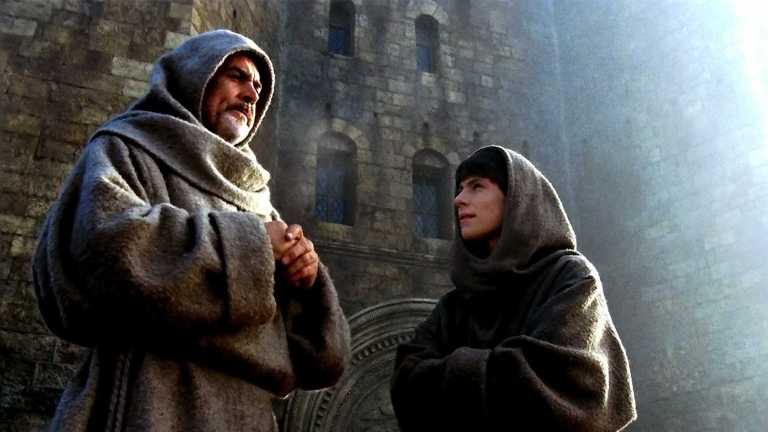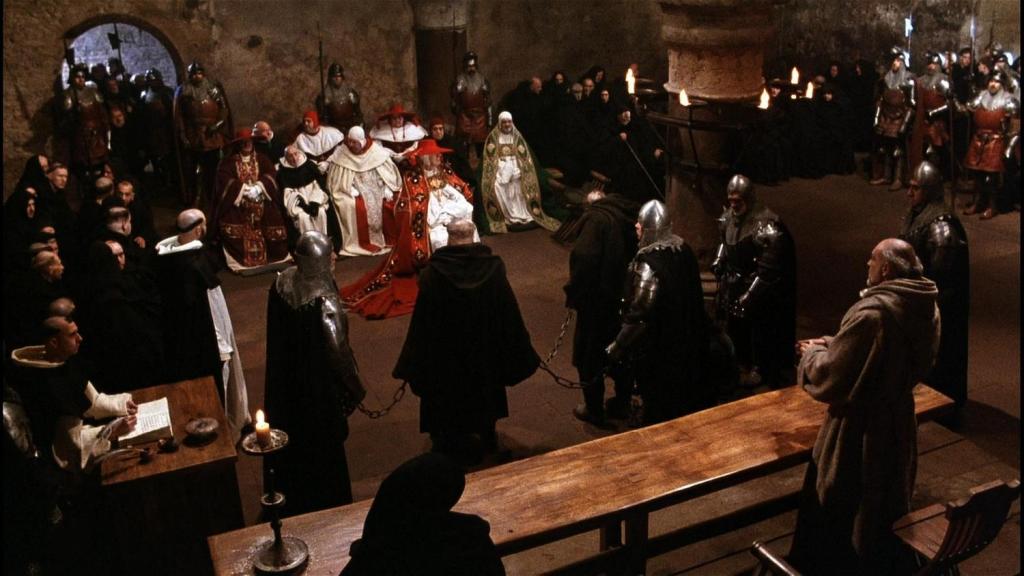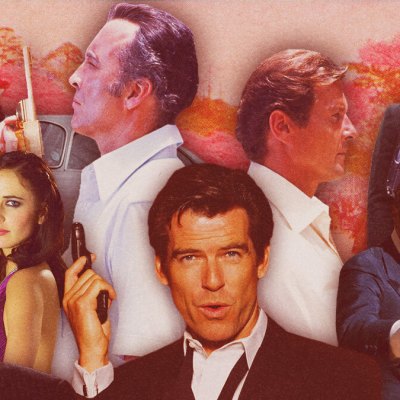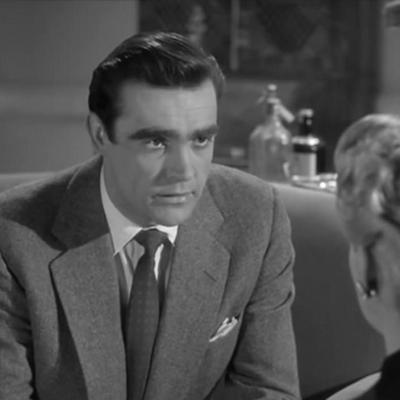The Closest Sean Connery Ever Came To Playing Sherlock Holmes
Late legend Sean Connery played a monk-turned-detective in The Name of the Rose.

In the course of his nearly 50-year career on the screen, the late Sean Connery portrayed many famous characters, both fictional and non-fictional. Among those were, of course, Ian Fleming’s suave spy James Bond in seven films; Daniel Druvot in 1975’s The Man Who Would Be King; King Arthur in 1995’s First Knight, Robin Hood in 1976’s Robin and Marian; Dr. Henry Jones Sr. in 1989’s Indiana Jones and the Last Crusade, and many more.
One role Connery never got to play was Arthur Conan Doyle’s legendary detective, Sherlock Holmes. But he did come close, playing a character who was based at least in part on Holmes, in the 1986 movie The Name of the Rose.
Based on the best-selling 1980 novel by Italian historian, philosopher and author Umberto Eco, the book and the film are set in 1327, as a Franciscan monk named William of Baskerville (Connery) and his young novice Adso of Melk (Christian Slater) travel to a remote abbey in northern Italy that’s home to an order of Benedictine monks, ostensibly for a high-stakes debate between the Franciscan order and emissaries of the Vatican over the poverty of Christ.
Once there, however, William is asked by the abbot (Michael Lonsdale, a Bond villain in 1979’s Moonraker) to help solve the mysterious death of a young monk. William, whose vast intellect is piqued by mysteries, is at first hesitant, as previous investigations have led him into direct conflict with the then-powerful Inquisition. But as more monks die, with the deaths apparently connected to a forbidden book of which no copies allegedly exist, William is drawn deeper into the puzzle and once again must eventually face the Inquisition in the form of the fanatical Bernardo Gui (F. Murray Abraham, in his first role since winning the Best Actor Oscar two years earlier for Amadeus).
Directed by Jean-Jacques Annaud (Quest for Fire) and starring an international cast that also included William Hickey (Moonstruck), Ron Perlman (Hellboy) and others, The Name of the Rose was and is a truly unique story and film: it is a detective story set in a medieval monastery, with a lead character inspired by both Sherlock Holmes (the “Baskerville” is a nod to Doyle’s The Hound of the Baskervilles) and the real-life 14th century Franciscan philosopher and theologian William of Ockham.
Shooting in Italy and Germany, Annaud was reportedly obsessed with getting the period details correct, right down to the illuminated manuscripts that are such an integral part of the plot. The film is certainly unlike any detective story one might have seen previously: the abbey is a forbidding, dank, oppressive place, while the monks almost to a man appear unhealthy, decrepit or deranged. It feels like the 1300s. Grisly killings, torture and — of all things — an explicit sex scene are all part of the proceedings.
Yet at the same time, The Name of the Rose is a dense work — almost too dense in some places — that features labyrinths both literal and metaphorical as well as rich thematic conversations on the nature of love, the existence of God, the power of laughter and, ultimately, whether knowledge is dangerous and should be repressed lest it weaken one’s faith in the Almighty.
The movie was the last of what one might call Connery’s “wilderness years,” before his Oscar-winning 1987 turn in The Untouchables put him back on Hollywood’s A-list. Following his final official appearance as Bond in 1971’s Diamonds are Forever, the Scottish actor embarked on a 15-year stretch of 20 films that featured both hits and misfires. Among his movies during this period were the well-regarded crime drama The Offence (1972), the deliriously loopy sci-fi epic Zardoz (1974), the desert war film The Wind and the Lion (1975), the adventure The Man Who Would Be King (1975), the spacebound High Noon reimagining Outland (1981), an unofficial Bond return in Never Say Never Again (1983) and the cult fantasy classic Highlander (1986).
It’s safe to say, however, that Connery’s career throughout this period did not reach the same heights of success that it did during his years as Bond. Columbia Pictures even pulled its backing from The Name of the Rose because the studio didn’t think the actor was a draw at that point, and Annaud reportedly did not at first want to hire James Bond to play the more intellectually-minded and philosophical William.
Annaud was eventually won over, and as screenwriter Andrew Birkin recently recalled while paying tribute to Connery in The Hollywood Reporter, the actor requested changes to the script to make William of Baskerville even more introspective than envisioned. Birkin said that Connery “brought pensiveness and thoughtfulness to the part. Things he wasn’t able to play in Bond. Bond is a man of action. Here, Sean played a man of words.”
Not surprisingly, Connery is magnificent in the role. His William of Baskerville is an empathetic, quick-witted, marvelously intelligent pursuer of knowledge and truth, quite willing to buck the conventional dogma of the Church at the time — at least privately. He is fatherly and compassionate to his novice Adso, especially when the latter inadvertently experiences his first stirrings of love for a woman (which, William points out amusingly, presents “certain problems” for a monk).

William is also a flawed character: as we learn, his intellectual pride in the past led to accusations of heresy against him and a man he was charged to protect, with William thrown into prison for several years and the man consigned to being burned at the stake. Reluctant at first to solve the murders at the abbey, he ultimately stands up for the truth once again, putting himself in grave danger.
It’s a complex performance in a complicated, dark but challenging film, and what’s strange is that even though Connery won a BAFTA Award for Best Actor (the British equivalent of an Oscar), The Name of the Rose is extremely difficult to see today.
The movie failed in North America, grossing just $7.6 million, but did better in Europe, earning around $77 million internationally. Yet it is not streaming on Amazon or Netflix, hasn’t been released on Blu-ray in North America and is out of print on DVD. You might have better luck if you have an all-region player, although the quality of the DVD and Blu-ray editions released internationally might be sketchy (we love the movie, and all we have is a crappy Italian DVD from some years back).
If you can catch it, it’s worth the time: The Name of the Rose not only features what we think is one of Connery’s best performances, but it’s a riveting historical/philosophical mystery on its own terms even if it condenses much of the esoteric musings that made Eco’s book a favorite with readers around the world. As for why this excellent movie did not take off at the time of its release and is not easy to see or remember today, that’s an enigma that even Sherlock Holmes might have trouble solving.


